
Mastering Your Money: 8 Powerful Finance Strategies from Crypto to Frugal Living.
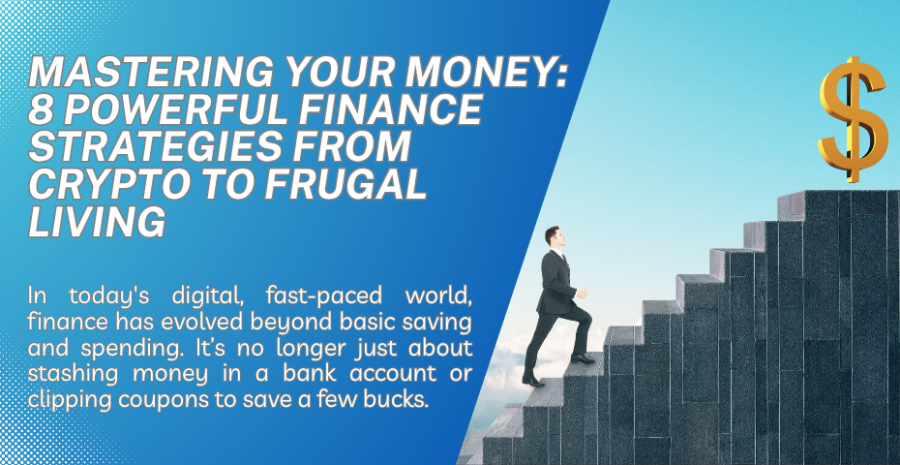
In today's digital, fast-paced world, finance has evolved beyond basic saving and spending. It’s no longer just about stashing money in a bank account or clipping coupons to save a few bucks.
Modern finance involves a complex but exciting landscape—cryptocurrencies, NFTs, financial independence movements, early retirement strategies, investment hacks, and frugal lifestyle choices that empower ordinary people to achieve extraordinary goals.
Whether you're a teenager trying to avoid credit card debt or a seasoned entrepreneur aiming to build generational wealth, mastering your money matters more than ever. Financial literacy is the foundation that enables you to make smarter decisions, avoid pitfalls, and turn everyday income into future wealth.
Yet despite the rising demand for financial knowledge, many people feel overwhelmed. There are countless blogs, YouTube channels, TikTok influencers, and news outlets offering advice—some helpful, others misleading. That’s why niching down and focusing on specialized financial areas allows you to create targeted strategies that work in real life.
For instance, budgeting is not just about tracking expenses—it's about aligning spending with values. Saving for retirement isn't only a late-life concern—it’s a lifelong plan that must adapt with market trends and career shifts. Frugal living isn’t about deprivation—it’s about intentional consumption.
And with the explosion of Web3 and blockchain technology, crypto and NFTs have reshaped what we think financial freedom looks like. Each niche represents a different kind of money mindset and pathway to freedom.
In this blog, we’ll explore eight unique and impactful areas within the finance world.
From leveraging cryptocurrencies to mastering personal finance basics, this blog gives you a 360-degree view of the smartest strategies to take control of your finances and unlock long-term growth.
No matter where you are on your financial journey, understanding and implementing the tools from these categories will put you ahead of the curve and closer to the life you truly want.
Let’s dive in.
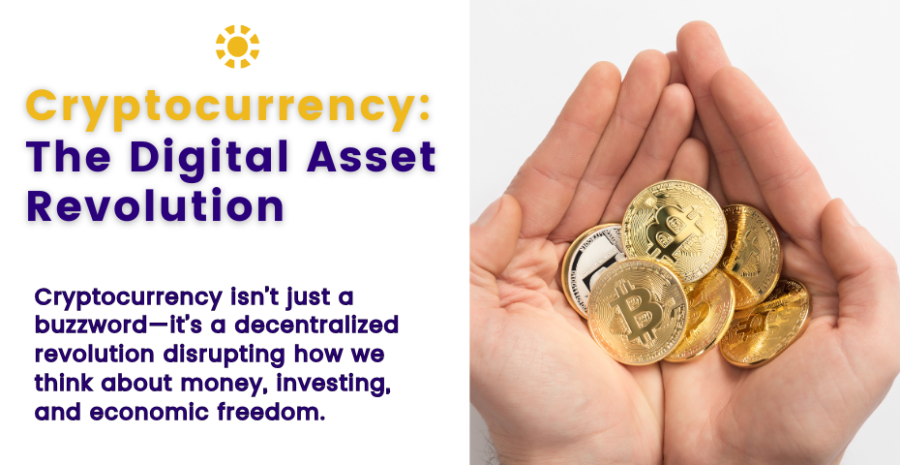
Cryptocurrency isn’t just a buzzword—it’s a decentralized revolution disrupting how we think about money, investing, and economic freedom.
Bitcoin, Ethereum, and thousands of altcoins are redefining traditional banking systems, removing intermediaries, and putting power back into the hands of users.
The appeal? Transparency, security, borderless transactions, and the potential for exponential gains.
But success in the crypto world isn't luck—it’s strategy.
First, understanding blockchain technology is vital. It’s the foundation that powers every coin and token.
Then, there’s research: knowing which projects have real-world utility, strong development teams, and clear tokenomics.
The key to thriving in crypto is not chasing the hype, but evaluating whitepapers, following the news, and keeping a long-term investor’s mindset.
Dollar-cost averaging, staking, and using secure wallets like Ledger or Trezor can minimize risks while increasing gains.
Plus, decentralized finance (DeFi) platforms now allow users to earn interest, lend, borrow, and invest without a bank.
With regulatory scrutiny increasing, education and compliance will only become more important.
For those ready to learn, cryptocurrency can be a gateway to financial autonomy and wealth creation in the digital age.
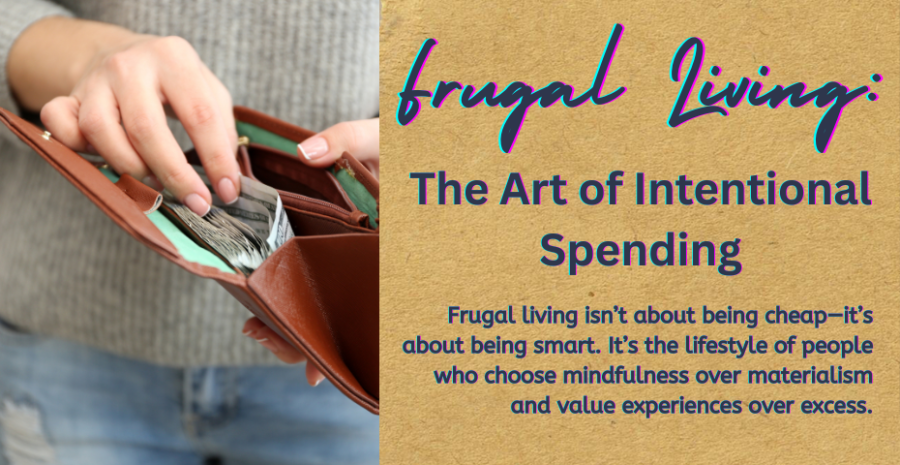
Frugal living isn’t about being cheap—it’s about being smart. It’s the lifestyle of people who choose mindfulness over materialism and value experiences over excess.
From cooking at home and eliminating unnecessary subscriptions to buying second-hand and avoiding lifestyle inflation, frugal living is a philosophy that empowers you to do more with less.
In a world obsessed with consumption, those who live frugally reclaim their time, peace, and purpose.
One of the biggest myths is that frugality equals sacrifice. But actually, frugal individuals often live richer, more fulfilled lives—free of debt, clutter, and stress.
They redirect their savings toward things that truly matter: travel, education, investments, or early retirement. Apps like YNAB and Mint help track spending and spot leaks.
Communities like Reddit’s r/Frugal share daily tips and tricks. But beyond tools, it’s about a mindset shift—from scarcity to strategy.
You begin to ask, “Do I really need this?” or “Is this aligned with my bigger goals?” Frugality becomes a lifestyle choice, not a fallback plan. It's a foundational financial habit that amplifies every other strategy, from saving to investing.
If you want to build wealth faster, start by spending less and living more intentionally.
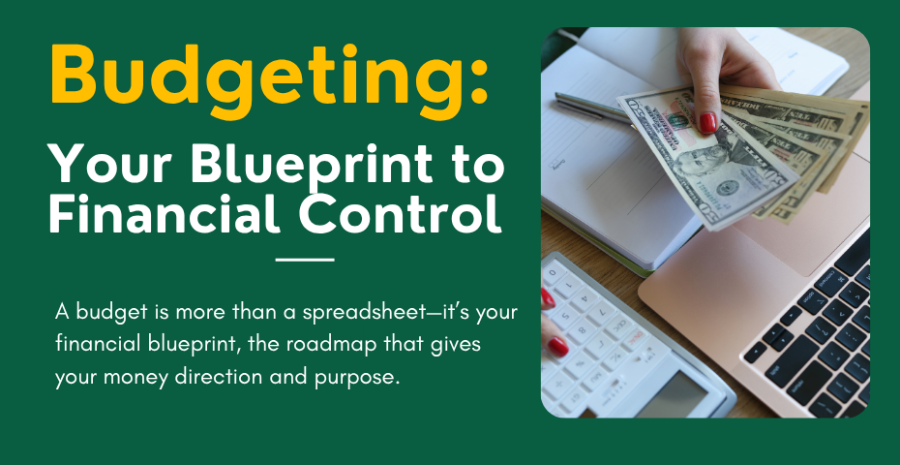
A budget is more than a spreadsheet—it’s your financial blueprint, the roadmap that gives your money direction and purpose.
Without one, you’re flying blind, reacting instead of planning. Budgeting empowers you to align your income with your goals, track progress, and course-correct in real time.
Whether you’re using a zero-based budget, the 50/30/20 rule, or an app like EveryDollar or PocketGuard, what matters most is consistency. First, categorize your expenses: fixed (rent, insurance), variable (groceries, fuel), and discretionary (entertainment, shopping).
Then, prioritize savings—pay yourself first. Automate where possible to avoid decision fatigue. Budgeting also helps identify emotional spending triggers.
Many people overspend to feel better or to keep up appearances. A good budget will show you the impact of every dollar spent, making it easier to say no to impulse buys and yes to what truly matters.
When followed with discipline, budgeting leads to more than just saved money—it creates peace of mind.
It’s the cornerstone of financial independence and one of the most empowering habits you can adopt.

Retirement might seem like a distant goal, but the earlier you start saving, the easier it becomes to build a nest egg that lasts.
Thanks to compound interest, small, consistent contributions can grow into substantial sums over time.
Whether you’re contributing to a 401(k), IRA, or a self-directed retirement account, the goal is to invest steadily and let time do the heavy lifting.
It’s also vital to diversify—don't rely solely on one retirement vehicle.
Consider Roth IRAs for tax-free growth, employer matches for “free” money, and even property or dividend stocks for additional streams.
Monitor inflation, rebalance portfolios annually, and stay informed on retirement legislation. Another critical element? Envision the lifestyle you want.
Retirement planning isn’t just about money—it’s about designing your future. Will you travel? Downsize?
Start a side business? The earlier you get clarity, the better you can plan. Neglecting retirement savings is one of the most common financial regrets.
Don’t make that mistake. Start small, but start today.

Investing is the engine that transforms saved money into wealth. Unlike saving alone—which loses value to inflation—investing allows your capital to grow through compounding returns, dividends, and asset appreciation.
From stocks and index funds to ETFs, REITs, and even alternative assets like gold or crypto, opportunities abound. The key is understanding your risk tolerance, investment horizon, and goals.
Are you investing for retirement, passive income, or financial freedom? Once defined, you can craft a portfolio that reflects your strategy.
Beginners can start with robo-advisors or low-fee index funds like those from Vanguard. As knowledge grows, you can explore individual stock picking, real estate, or options trading.
Always do your homework. Avoid meme stocks and social media hype. Instead, read financial reports, understand valuations, and invest in what you believe in.
Investing isn’t gambling—it’s strategic decision-making rooted in knowledge and patience.
The sooner you begin, the greater your potential for long-term gains.

Financial independence means reaching a point where you no longer need to work for money—your investments, assets, or passive income streams cover your living expenses.
The FIRE movement (Financial Independence, Retire Early) popularized this concept, and it's reshaped how a new generation thinks about work and money.
It starts with aggressive saving—often 50% or more of your income—and wise investing. People on the FI journey live intentionally, reduce expenses, increase income through side hustles or business ventures, and invest every dollar with purpose.
It’s not about deprivation; it’s about buying freedom. Financial independence also allows more time for passion projects, travel, or family. It gives you choices, flexibility, and peace of mind.
You don't have to wait until 65 to enjoy life. FI proves that with the right strategies, you can reclaim your time decades earlier than expected.
Start with the goal in mind, track your net worth, and build toward freedom—one smart decision at a time.
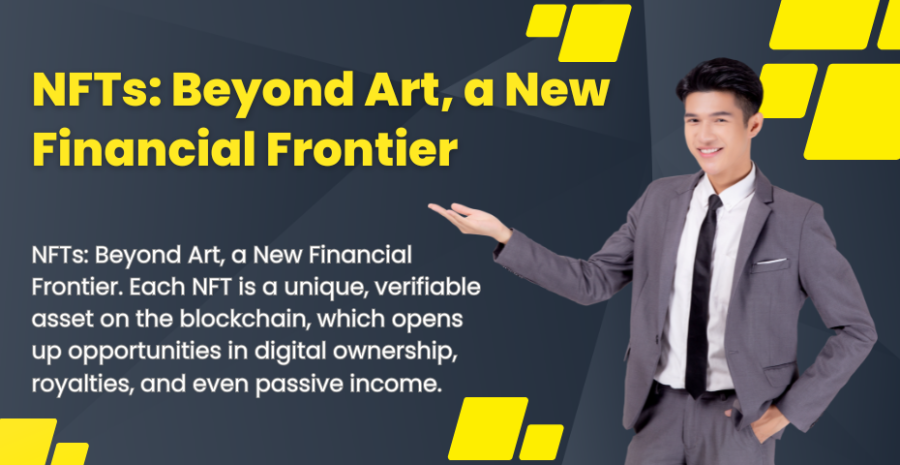
Non-fungible tokens (NFTs) started as digital art collectibles but have evolved into powerful financial instruments. Each NFT is a unique, verifiable asset on the blockchain, which opens up opportunities in digital ownership, royalties, and even passive income.
Some NFTs provide access to exclusive communities, events, or services. Others represent virtual real estate, music rights, or tokenized physical assets.
As the ecosystem matures, utility-driven NFTs are gaining popularity. Investors should understand smart contracts, rarity metrics, and project roadmaps. Tools like OpenSea, Rarible, and Blur offer marketplaces, while platforms like Ethereum or Solana provide the infrastructure.
But beware—scams and hype are rampant. Always do thorough research before investing. While not for everyone, NFTs offer a unique way to diversify a portfolio and participate in the new digital economy.
The key is to look beyond the surface and understand the long-term value of what you’re buying.
.png)
Personal finance is the heart of it all. It’s how you manage your income, expenses, debt, savings, and investments on a day-to-day basis.
Mastering it doesn’t require a finance degree—it just requires discipline and intention. Start with a clear financial snapshot: your income, expenses, liabilities, and assets. Set goals: paying off debt, building an emergency fund, or saving for a house.
Then automate your systems—auto-pay bills, auto-transfer to savings, auto-invest. Credit management is key: maintain good scores, pay balances on time, and keep utilization low.
Also, consider insurance—health, life, disability—as essential risk management tools. Personal finance is not static; it evolves with life stages.
From student loans and marriage to buying property or having kids, staying financially organized ensures stability. Reading books, following trusted experts, and continuously improving your knowledge will keep you ahead.
The goal isn't perfection—it’s progress. With strong personal finance habits, everything else becomes easier.
Finance isn’t just about numbers—it’s about freedom, intention, and legacy. Whether you’re diving into crypto, adopting a frugal mindset, designing a personalized budget, or building a retirement portfolio, the tools you choose today shape the life you’ll live tomorrow.
Each strategy explored in this blog—from investing and saving to NFTs and financial independence—offers a different path to financial empowerment. You don’t need to master them all overnight. Start with one area, take action, build momentum.
The magic is in consistency. When you track your money, reduce waste, invest wisely, and embrace lifelong learning, financial control becomes not just possible—but inevitable. In a world where many struggle with debt, confusion, and consumerism, you have the chance to break free and lead with clarity.
Your financial journey is yours to define. And whether your goal is security, freedom, wealth, or legacy, the time to start is now.
You don’t have to be rich to get smart about money—you just have to get started.
Your time to thrive is now. One step at a time.
.jpg)
About: Andries vanTonder (66)
Over 46 years selfemployed
He is a Serial Entrepreneur, an Enthusiastic supporter of Blockchain Technology and a Cryptocurrency Investor
Find me: Markethive Profile Page | My Twitter Account | My Instagram Acount | and my Facebook Profile.
